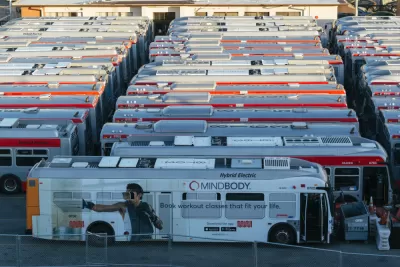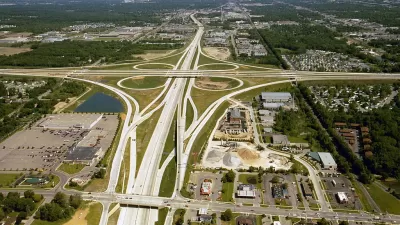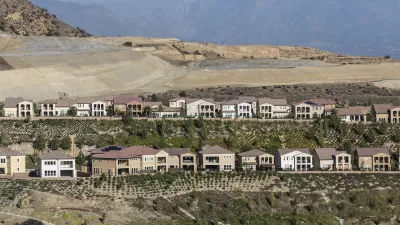Supporting California’s public transit systems is key to fighting climate change and boosting the state’s economy.

A blog post by Zak Accuardi for the Natural Resources Defense Council, like others before him, calls on California leaders to save the state’s faltering public transit systems. “Steering public transit off a fiscal cliff,” Accuardi writes, is “no metaphor: the state is on course to leave hardworking people at the curb, choking on hot, polluted air—waiting for a bus that may never come.”
For Accuardi, Gov. Newsom’s latest budget doesn’t do nearly enough to restore effective service and give transit agencies the resources they need to grow into the future and move toward cleaner fleets. “Instead of impossible trade-offs that will hurt riders and workers, the Governor and Legislature should seize an opportunity to start doing for the state’s transit network what we have spent 70 years doing for the state’s highways—make the investments necessary to create a system whose benefits are accessible to all Californians.”
Aside from the obvious benefits to transit-dependent workers, Accuardi calls saving public transit an “essential climate strategy.” Accuardi believes California should reallocate highway funding to support transit instead. “Strong investment in public transit will preserve and expand jobs for bus operators, reduce cars on our highways, and clean the air we breathe.”
FULL STORY: Want to save the planet? Save the bus

Trump Administration Could Effectively End Housing Voucher Program
Federal officials are eyeing major cuts to the Section 8 program that helps millions of low-income households pay rent.

Planetizen Federal Action Tracker
A weekly monitor of how Trump’s orders and actions are impacting planners and planning in America.

Ken Jennings Launches Transit Web Series
The Jeopardy champ wants you to ride public transit.

Crime Continues to Drop on Philly, San Francisco Transit Systems
SEPTA and BART both saw significant declines in violent crime in the first quarter of 2025.

How South LA Green Spaces Power Community Health and Hope
Green spaces like South L.A. Wetlands Park are helping South Los Angeles residents promote healthy lifestyles, build community, and advocate for improvements that reflect local needs in historically underserved neighborhoods.

Sacramento Plans ‘Quick-Build’ Road Safety Projects
The city wants to accelerate small-scale safety improvements that use low-cost equipment to make an impact at dangerous intersections.
Urban Design for Planners 1: Software Tools
This six-course series explores essential urban design concepts using open source software and equips planners with the tools they need to participate fully in the urban design process.
Planning for Universal Design
Learn the tools for implementing Universal Design in planning regulations.
Heyer Gruel & Associates PA
Ada County Highway District
Institute for Housing and Urban Development Studies (IHS)
City of Grandview
Harvard GSD Executive Education
Toledo-Lucas County Plan Commissions
Salt Lake City
NYU Wagner Graduate School of Public Service





























